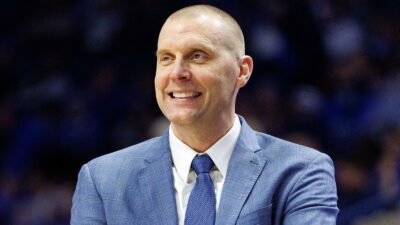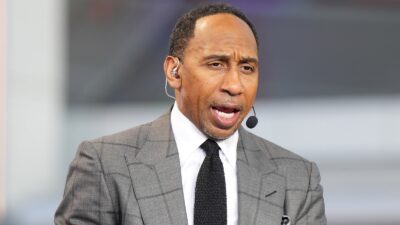
The heightened societal awareness regarding abuse has led to a change in power among college coaches and their players to the point that Geno Auriemma says many coaches are “afraid” of their players.
Auriemma, who has led his UConn Huskies to the Final Four this season, talked with the media on Tuesday about the fears coaches now have.
“The majority of coaches in America are afraid of their players,” Auriemma said, via ESPNW’s Mechelle Voepel. “The NCAA, the athletic directors and society has made them afraid of their players. Every article you read: ‘This guy’s a bully. This woman’s a bully. This guy went over the line. This woman was inappropriate. Yet the players get off scot-free in everything. They can do whatever they want. They don’t like something you say to them, they transfer. Coaches, they have to coach with one hand behind their back. Why? Because some people have abused the role of a coach.”
Auriemma is right. There are some coaches who have abused their role and given reason for athletic directors to listen carefully to the complaints of players. The NCAA’s new relaxed transfer rules have also allowed student-athletes to change schools more readily. Those are positive developments. The problem is when players abuse their powers by complaining or leaving programs when faced with challenges, unpleasantness, or adversity. The worst example is the guff Tom Izzo took for aggressively yelling at a player in a do-or-die game with Michigan State’s season on the line. Coaches should not have to fear backlash or job security for holding their athletes accountable, even if their actions are sometimes accomplished through yelling.
Notre Dame coach Muffet McGraw agrees and says the higher standard for coaches is important, though players need to be able to handle some yelling.
“I think this generation is not tolerant. That’s not a bad thing. But back in the day, coaches could pretty much do anything, say anything. Nobody really complained. Now [players] know better. They’re demanding to be treated better. [But] kids are going to get yelled at. They need to be able to take a little bit of that,” McGraw said.
As is the case in many examples, the best solution lies somewhere in the middle. Coaches shouldn’t unilaterally have power to treat their players as they wish, leaving the student-athletes with no voice to speak up. And student-athletes should have to deal with some unpleasantness if it’s aimed at making them better and accountable, without feeling a need to flee a program.













